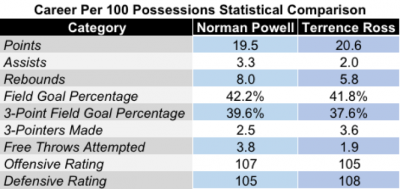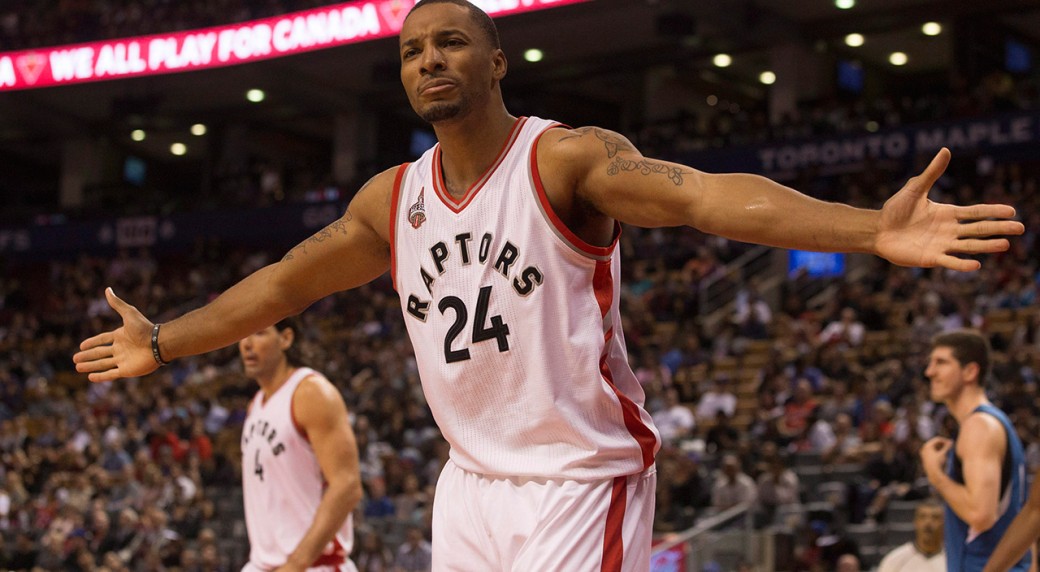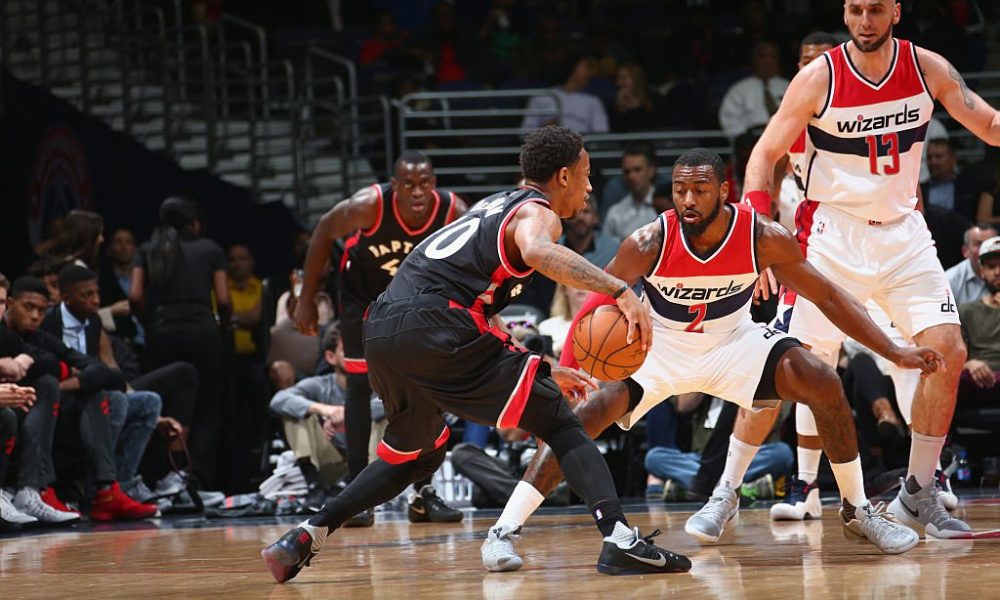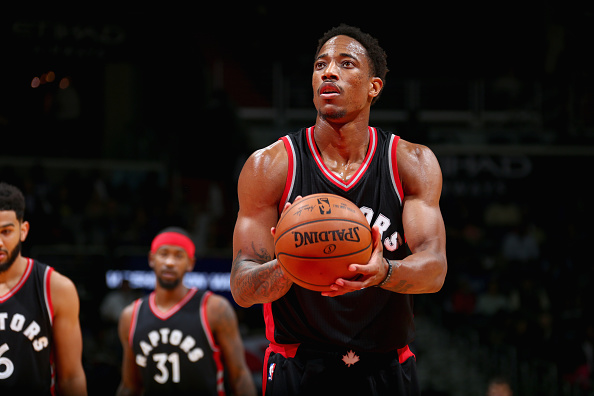Norman Powell – a rookie sensation who stole the hearts of many a Raptor fan late in the 2015/16 regular season; a rookie who significantly contributed to the Raptors clearing a seven-game series hurdle for the first time in franchise history, in part by successfully defending the opposition’s franchise player; a rookie who literally blew the roof off the ACC in game 5 of the first round of the NBA playoffs; a rookie who endeared himself to fans by projecting a humble, hardworking attitude and adding a three point shot during the season, thereby addressing his biggest weakness on draft night; a sophomore who has played a total of 19 minutes through 4 games in this young NBA season.
The Toronto Raptors have a crowded back court and wing rotation, especially with the minutes (36+) that Lowry and DeMar play. Add to the equation a healthy Carroll who will play north of 30 a night (most of them at the 3), and Joseph acting as Casey’s trusted backup combo guard with another 22-25 minutes, and there simply isn’t much left. That’s where the backup wing slots in – and with 20 or less minutes available, it’s a musical chairs game between Ross and Powell. Ross is coming into his fifth season in the NBA as the fifth highest paid player on the team ($10 mil.), playing his entire career under Dwane Casey and bringing a proven floor-stretching capability to a team mostly devoid of shooters. Ipso facto, Ross entered the year above Powell in the rotation.
The facts stated above however, should not automatically entitle Ross to guaranteed minutes. The first four games of the year aside (small sample size and all), three-point shooting stands as the only consistent factor in his game throughout his career. In every other metric, he proved more uneven than the streets of San Francisco. How many more years will we await his true breakout – the one that will result in Ross being a reliable end-to-end contributor? I don’t want to compare him to the Italian whose name shall not be uttered in the lands of the North, but the thought is difficult to avoid. Ross had countless opportunities to develop, to cement his place among the team’s core, and the long leash was fine in times when there was no viable future piece ready to contribute behind him. But times have changed.
In lieu of comparable minutes (14.3 for Norman vs. 23.3 for Terrence), I compiled the career per 100 possessions statistics for Powell and Ross (with the aid of wonderful basketball-reference.com):

A number of caveats apply – Powell has played in only 51 career regular season games to Ross’ 312, and attempted only 91 3-pointers to Ross’ 1,338. But one can’t escape the fact that he wins out in 7 of the 9 chosen categories. It’s therefore imperative that Powell is tested in his second year without the benefit of being overlooked on opponent scouting reports, to see whether he can maintain that kind of production.
In the results-oriented world of professional basketball, Norman proved he can contribute to winning in the most difficult and high pressure environment the sport has to offer – the NBA playoffs. As a rookie. The mental maturity that the combination of those two facts entails cannot be overstated. A significant portion of NBA players who perform at an acceptable level in the regular season tend to weaken or disappear completely when the post season comes around. Terrence Ross is just such an example – his first playoff series against Brooklyn likely still haunts him late at night while he’s waiting for his next 2K game to load. He shot under 17% from 3 that year, posted an offensive rating of 68 (!), and a defensive rating of 109 in more than 22 minutes of play. Yes, he has improved since then. But has he improved enough to justify knocking a potentially more productive player from the rotation?
Terrence Ross is not a bad player, he simply has not proven to be a consistently good one. Neither has Powell at this point. But what Norm has shown is promising – hard work resulting in quick in-season improvement, and a cold-bloodedness on the court uncommon to rookies. He needs to be given the opportunity to sink or swim in deeper waters, since he’s not a 20 year old project like Bruno with all the time in the world. Powell is 23, quickly approaching his physical prime. As tough as it may be to work in, Casey needs to find some minutes for him, as every game that he remains in the role of bench cheerleader feels like a waste. This could be done by giving Kyle and DeMar a few more minutes of rest each game to keep them fresh for the playoffs, or Carroll to make sure his knee doesn’t flare up. If Powell proves to be a one-hit wonder, he can always be sent back to the end of the pine. But this kid has already displayed the talent and mental fortitude needed to succeed as a valuable rotation piece in the NBA on both ends of the floor, and betting against his continued success feels like a terrible wager. #FreeNorm.




